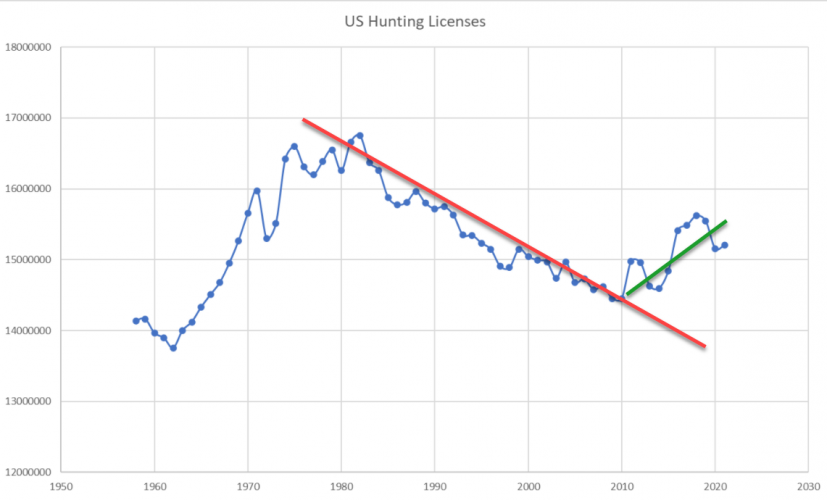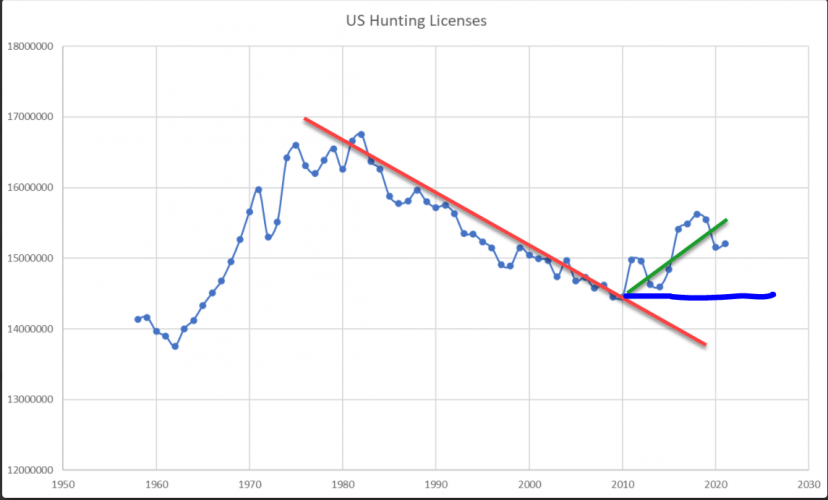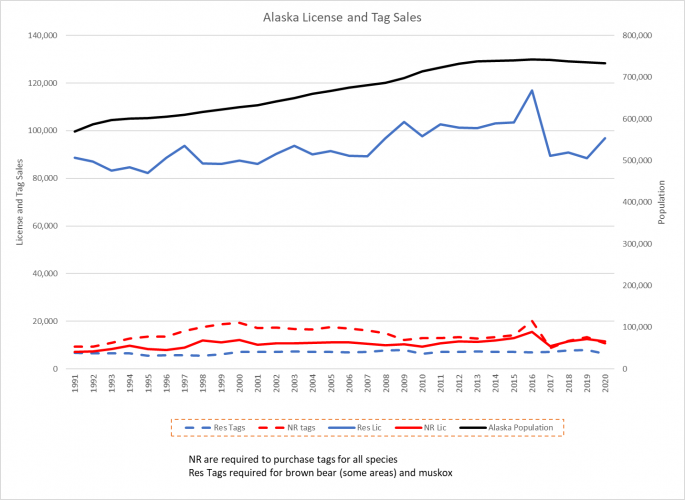D
Deleted member 28227
Guest
I guess I'm arguing this, the red trend is real. The green trend is due to multi-state hunting at a never before seen level.1. Like I said draw your own conclusions. You can base those off of online user groups, or friends, or family, people you meet at the bar, or wild ass guesses. I really don't care.
2. Does it really matter if five people are each buying one license or if one person is buying 5 licenses and hunting five states? Take the single person, if they hunt those each of those states then they = a hunter in each of those states. Hopefully they also are vested in the wildlife in each of those states, and make the time and effort necessary to advocate for wildlife in those states.
People are getting too twisted around on the details and are missing the big picture.
So net net less individual hunters, but the hunters who are out there are using up 'more of the resource'.
I can't prove that at all, it's entirely an opinion. I think Rinella hasn't inspired that many new hunters, he's just gotten dudes from Michigan to buy CO elk tags.
I mean CPW did say that in the steamboat region of CO for OTC Archery it was 70% NR 30% Resident hunters







